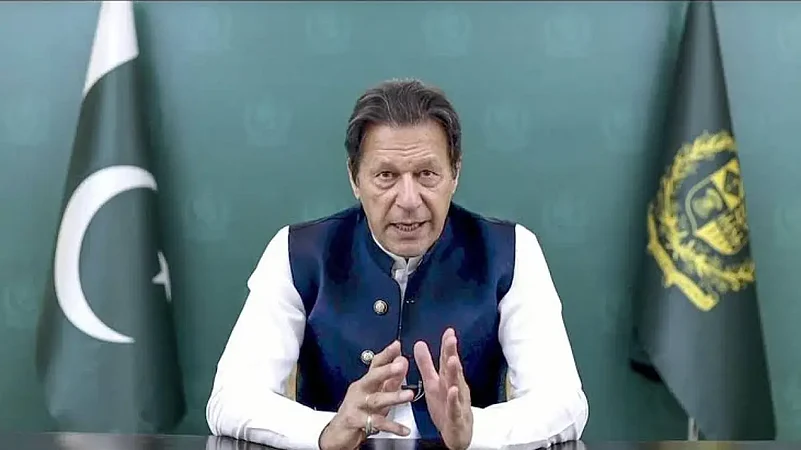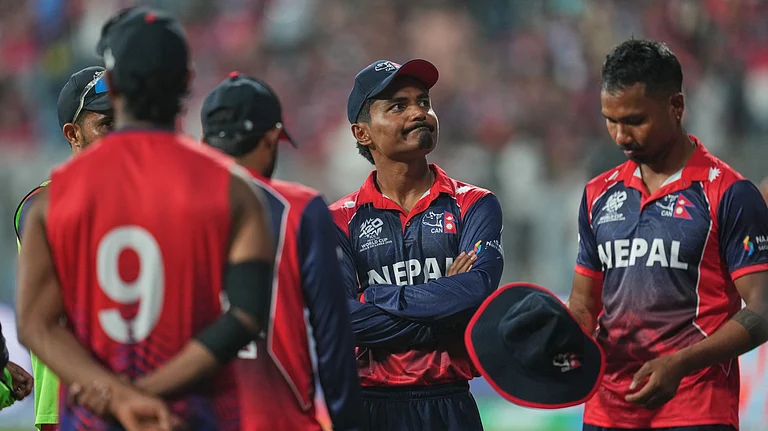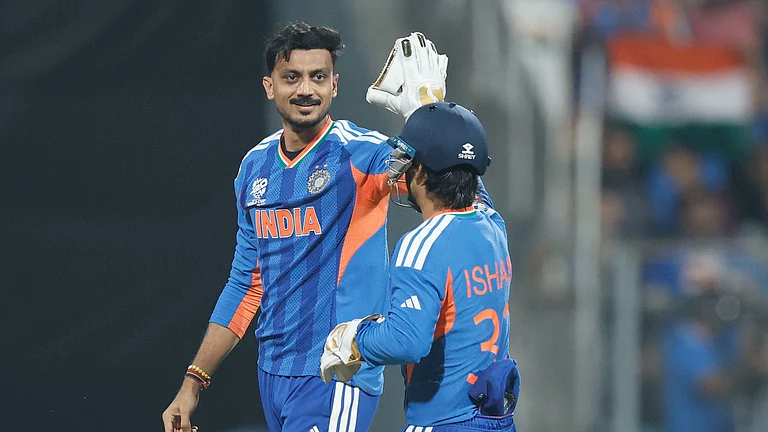Pakistan is hosting a mega two-day diplomatic event in Islamabad with foreign ministers of the 57-member Organisation of Islamic Cooperation (OIC) gathered to discuss the problems of the world’s 1.5 billion Muslims. For Prime Minister Imran Khan, facing a determined opposition no-confidence vote next week to oust him from power, the OIC meeting has come as a welcome diversion. The dazzle of the diplomatic event will help to reinforce his image as a leader fighting for the rights of Muslims across the world. The plight of Indian Kashmiris will be highlighted during the various sessions. Resolutions condemning Indian action are expected considering the OIC have adopted such statements, despite the fact that many members have excellent ties with New Delhi.
Foreign ministers of 46 countries are attending the event. The icing on the cake however is the presence of Chinese foreign minister Wang Yi. Saudi Arabian Foreign Minister Prince Faisal bin Farhan Al-Saud, OIC Secretary-General Hissein Brahim Taha, Islamic Development Bank President Dr Muhammad Suleiman Al-Jasser. Afghanistan’s foreign minister is not attending, though senior officials from the foreign ministry are present.
Khan kicked off the event with an inaugural speech, where he spoke of the plight of Muslims in Kashmir and Palestine. "We have failed both the Palestinians and the people of Kashmir. I am sad to say that we have been able to make no impact at all.’’ He said that the powerful western world "did not take the OIC seriously" because "we are a divided house and those powers know it."
Indian officials will agree with Khan that the OIC is not taken seriously. Successive Indian governments have dismissed the OIC resolutions on Kashmir as irrelevant, though responding with indignation and denying the charges made in the resolution. Prime Minister Khan sees himself as a fighter for the rights of Muslims, yet so far, he has not said a word against China’s treatment of its Uyghur Muslims in Xinjiang.
India and the OIC
As a country that has the second-largest Muslim population in the world, India should have had at least observer status in the OIC. However, Pakistan has succeeded over the years to make sure that India comes no where near the OIC. In fact, in September 1969 India was invited to the OIC conference in Morocco. The invitation came from the late Saudi King Faisal. India was not the only non-Muslim country to be invited, several other countries with substantial Muslims were also sent invitations. The Indian delegation to Rabat was led by Fakhruddin Ali Ahmed, India’s then Industries minister. He later became the country’s first Muslim president and is infamous for signing on the dotted lines when Indira Gandhi declared the emergency in 1975. Fakhruddin Ali Ahmed and his team were not allowed to enter the venue. The Pakistan delegation headed by President Yahya Khan ensured that India was out. OIC was embarrassed and offered India observer status as the invitation was extended by the Saudi King. New Delhi was in no mood to relent after the humiliation it received in Rabat.
Pakistan at that time was a powerful member of the OIC, and guided the organisation. Other Muslim countries, especially the oil-rich Gulf states often went along with what Pakistan suggested at the OIC. Islamabad was able to convince the others that India had no place at a forum that aims to protect the interests of Muslims across the world. This was at a time when Pakistan, a close ally of the US, was seen as a mover and shaker of the region. The Gulf kingdoms were not assertive and allowed Pakistan to dictate the terms.
Pakistan managed to introduce anti-India resolutions at every OIC meeting. However, the OIC vote never came in the way of good relations with New Delhi for many of the member states.
Finally, in 2019, India once again received an invitation to the OIC, this time from the United Arab Emirates. By this time much had changed in the world and Pakistan was not in a position to stop India’s foreign minister the late Sushma Swaraj from attending. She was invited as a `` guest of honor’’ by the UAE foreign minister Sheikh Abdullah bin Zayed Al Nahyan to the 46th summit. Also, New Delhi’s ties with the Gulf countries had improved by leaps and bounds. Prime Minister Narendra Modi was given the UAEs highest civilian award indicating the warmth and importance of ties between the two countries.
Pakistan could do little to prevent Sushma Swaraj from attending and addressing the meeting. Bangladesh suggested in 2018, during an OIC meeting in Dhaka that India should be given `Observer status’ considering a large number of Muslims living in India. However not much has happened since then.



























